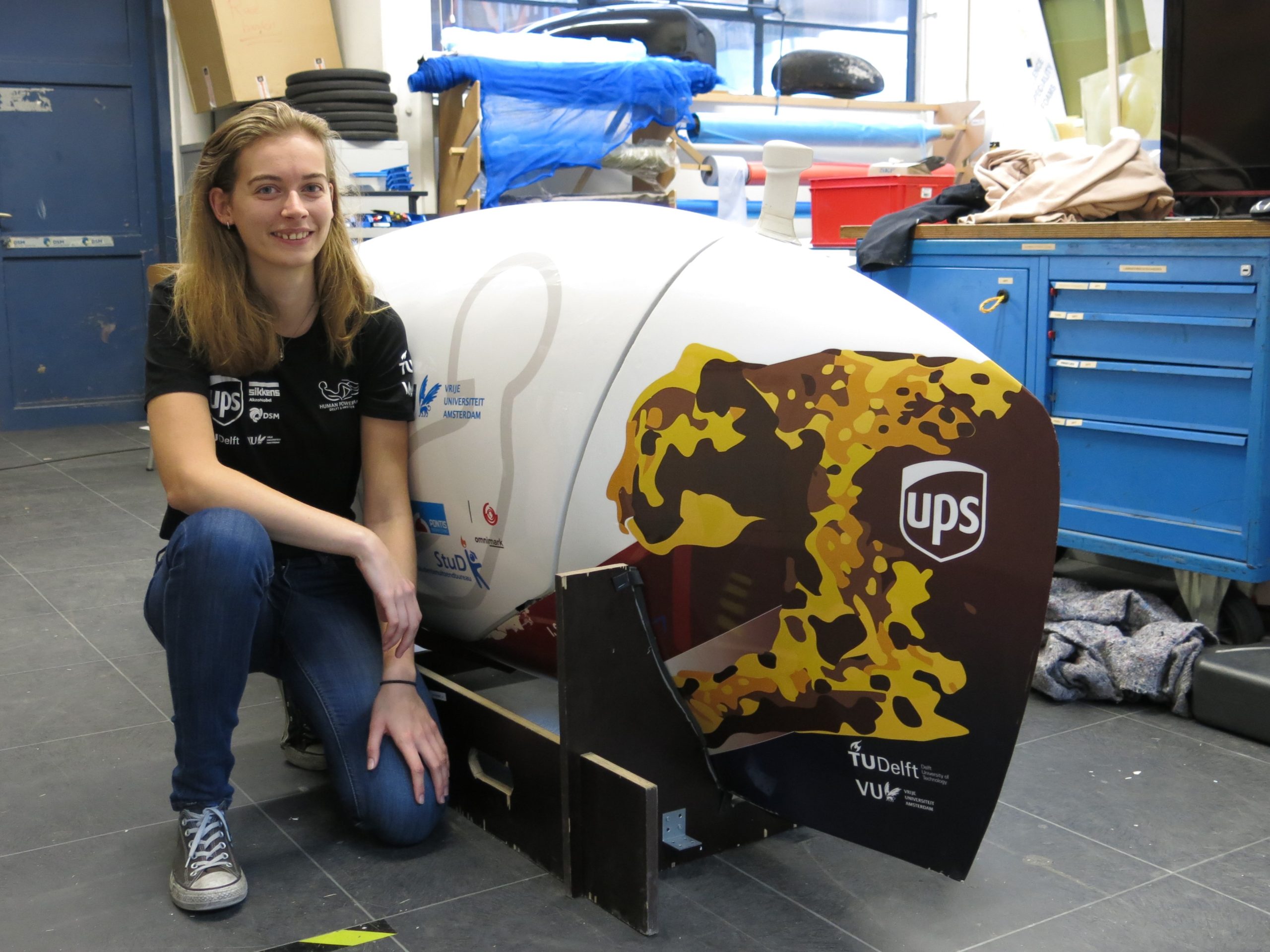Who are the people who study and work at TU Delft? We meet them in Humans of TU Delft where they talk about their work or other activities. Julia Weiffenbach admits she doesn’t know much about applied aerodynamics. But after recently graduating with a bachelor’s in applied physics, she’s determined to learn as part of the Human Power Team.
Julia Weiffenbach is pictured here with the bicycle designed by last year’s Human Power Team.
“I saw that they were looking for people for the Human Power Team on Facebook and sent an e-mail. They said I could come in for coffee and put in an application. When I applied, they looked at what function would be good for me so I was invited to the team as an aerodynamics engineer even though I didn’t really know anything about aerodynamics. I studied applied physics so I know about fluids and fluid dynamics but that’s about all. So I’m basically learning everything from scratch now, but it’s really fun.
We have different departments, such as our drivetrain department consisting of mechanical engineers. They know about mechanics from their studies, but they have never really designed a pedalling system either so we all just learn as we go.
‘The design for the shell is bound by the dimensions of our athletes’
Now we’re in our concept phase so we look at what the people did last year and look for possible improvements. We’re learning all of the factors that are involved in our specific functions. Right now with the aerodynamics department, we’re basically looking at what are the most aerodynamic shapes and what is realistic for the shape because the design for the shell is bound by the dimensions of our athletes.
Our team members from the Vrije Universiteit Amsterdam are doing the athlete selection right now so we don’t know what the measurements should be yet. We’re hoping by the end of October to make the selection and then we can start by making a 3D scan of the athlete. Then we’ll use a CAD (computer aided design) programme and we can build the shell.
Our competition will be September 2018 in Nevada where we’ll try to break the speed world record for women.”
Heather Montague
Meet other Humans of TU Delft:
Heather Montague / Freelance writer



Comments are closed.